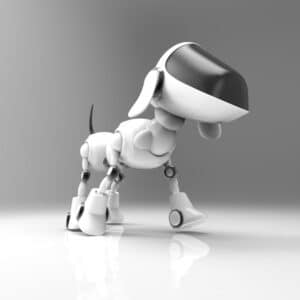Laser Robots in Automotive Factories
Many manufacturing facilities have become outdated and inefficient. Many companies are retooling. The products have changed, but also the flow in the facility. Flexible manufacturers are needed to meet the production demands.

Laser Robots in Automotive Factories
Detroit’s automotive factories were retooled during WWII to produce armored vehicles and tanks. They also built amphibious trucks, war machines, and more. Detroit experienced a boom during World War II. These same auto plants are now seeing the need to change more as cars and trucks have different assembly requirements.
Ford Motor Co. is using 2 robots that can retrieve pictures and videos from a car plant to assist engineers in designing upgrades for workspaces. Fluffy the robotic dog is controlled with a handheld gadget by an engineer. Fluffy’s battery can last for two hours and travel at speeds up to three miles per hour. Fluffy can ride “Scouter,” a small robot that travels through the factory to conserve power. Together, the two companions collect data.
It is our goal to update the original engineering plan for one of their transmission manufacturing plants. It’s hard to tell if new retooling plan will work with plants that have changed since they were built. With their scanning and imaging abilities, the robots will be able produce highly accurate and detailed maps, which Ford engineers can use to modernize and upgrade the facility.
Mark Goderis is the digital engineering manager at Ford’s Advanced Manufacturing Center. He said that with an accurate scan of the piece, “we could build it within the workstation and see if anything interferes, or if all new pieces will fit.”
This approach has a number of benefits.
They will save time in the first place by not having to manually scan the entire facility or move the laser scanner around. The robot dogs will also save up to half of the time, as they use five cameras in addition to laser scanners. The robots will also be able to access areas that people may not have been able to reach.
Industrial robots can be programmed and are automated. Applications include welding and painting, assembly, disassembly and palletizing. SUPERIOR Optics can provide custom or standard Laser Lens assemblies to robot manufacturers.




